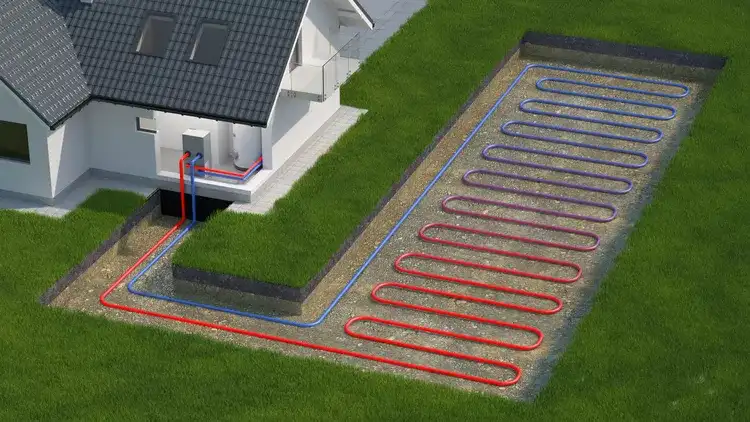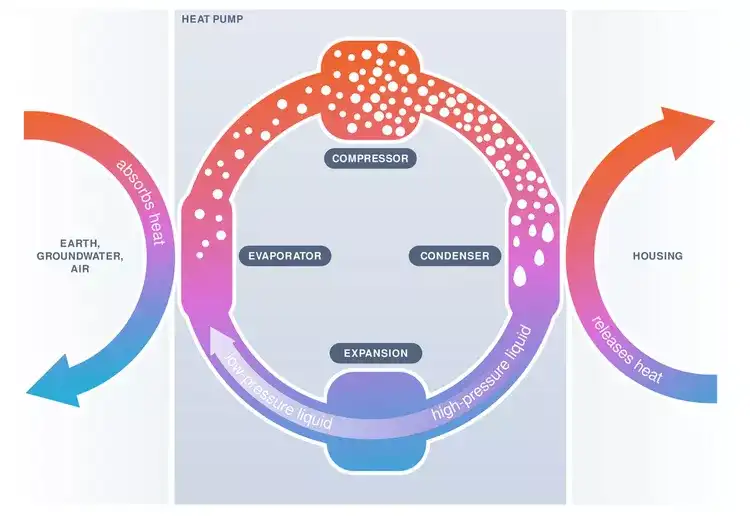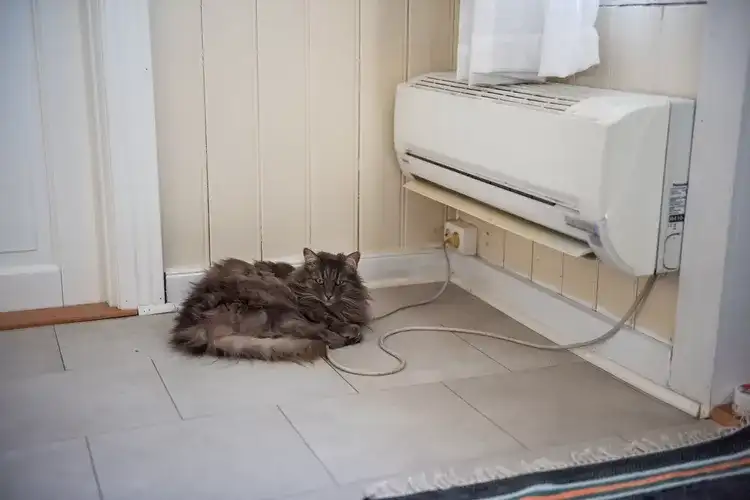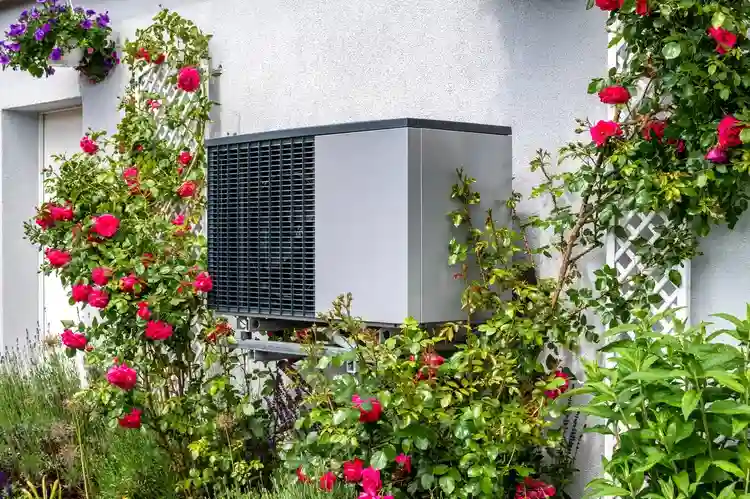This article explains what a heat pump is, how different types operate, their sustainability and cost benefits, how they perform in cold climates, practical buying advice, and common questions homeowners ask when considering a heat pump.
Heat Pumps: The Dual-Purpose Solution for Year-Round Comfort
A heat pump is a high-efficiency system that heats and cools your home by moving heat, not generating it. Like a refrigerator or air conditioner, a heat pump transfers warmth from one place to another bringing heat inside in winter and pushing it out in summer. This versatility makes heat pumps an increasingly popular alternative to separate furnaces and air conditioners, especially as demand for low-emission technologies rises.

How Heat Pumps Work: Air-Source vs. Ground-Source
There are two primary types of heat pumps, both capable of heating, cooling, and supplying hot water.
- Ground-Source Heat Pumps (Geothermal): These systems circulate a fluid through pipes buried underground, where the earth’s temperature is stable year-round. The fluid absorbs underground heat, which is then compressed and transferred into the home. In summer, the process reverses, sending heat from indoors back into the soil.
- Air-Source Heat Pumps: These units extract heat from outside air, even in cold weather, and release it inside your home using a refrigerant. In cooling mode, the process flips removing indoor heat and expelling it outside.
A crucial component in both systems is the heat exchanger, which transfers energy between fluids without mixing them. Modern heat pumps use advanced refrigerants and reversing valves to efficiently switch between heating and cooling modes.

Cold Climate Performance: Can Heat Pumps Handle Winter?
While ground-source heat pumps work reliably in any climate thanks to stable underground temperatures, air-source models have made significant strides. Today’s high-performance air-source heat pumps can operate efficiently even in subzero conditions some are used as far north as Antarctica. They achieve this by using refrigerants that vaporize at extremely low temperatures, allowing heat extraction from very cold air.
Even in harsh winters, modern heat pumps are twice as efficient as gas furnaces in freezing temperatures, though they may use more electricity as temperatures drop.
Sustainability: Cutting Carbon and Improving Safety
Buildings account for over a third of global greenhouse gas emissions, mostly from heating and cooling. Heat pumps, especially when powered by renewable electricity, offer a cleaner alternative to burning fossil fuels. With 40% of U.S. electricity already coming from non-fossil sources, electric heat pumps are usually cleaner and safer than gas furnaces, which carry risks of carbon monoxide poisoning.
Pairing a heat pump with solar panels can make your heating and cooling nearly emissions-free.
Costs and Efficiency: What to Expect
Upfront costs for heat pumps vary. Air-source systems typically range from $3,500 to $5,200 (plus installation), while ground-source systems cost $10,000 to $30,000 due to the need for excavation. However, a heat pump replaces both your furnace and air conditioner, potentially saving thousands over buying separate systems.
Operating costs are usually lower with heat pumps, thanks to their efficiency air-source models can deliver up to three times more heat energy than the electricity they use. In all but four U.S. states, heat pumps are cheaper to run than high-efficiency gas furnaces, with 15-year savings in some areas topping $13,000.
Ground-source heat pumps use even less energy, often cutting consumption by 44% compared to air-source models.

Financial Incentives and Stable Energy Costs
Federal and state programs can make heat pumps more affordable. The Inflation Reduction Act of 2022 offers up to $2,000 in tax credits for heat pump purchases and installation, with additional local and utility rebates often available.
Electricity prices tend to be more stable than fossil fuel prices, especially as more renewable energy is added to the grid, helping to protect homeowners from rising or volatile fuel costs.
Key Buying and Installation Tips
- Start with an energy audit to fix leaks and maximize savings.
- Ensure the system is sized correctly for your home.
- Check the noise ratings most heat pumps are quiet but compare models.
- Plan for regular maintenance and consider warranty coverage.
- Older homes may need electrical upgrades for new heat pumps.
- Best time to install: when replacing an old HVAC or building a new home.
Frequently Asked Questions
- Can heat pumps work in homes without ducts? Yes, ductless heat pumps (mini-splits) use wall-mounted air handlers connected to an outdoor unit via conduits.
- Are the refrigerants in heat pumps safe for the environment? Modern systems use refrigerants with low global warming potential and no ozone depletion. Look for models with hydrocarbon refrigerants like propane or isobutane for the lowest impact.
A heat pump is more than just a heating or cooling unit it’s a sustainable upgrade for your entire home, offering efficiency, comfort, and cleaner air for years to come.





